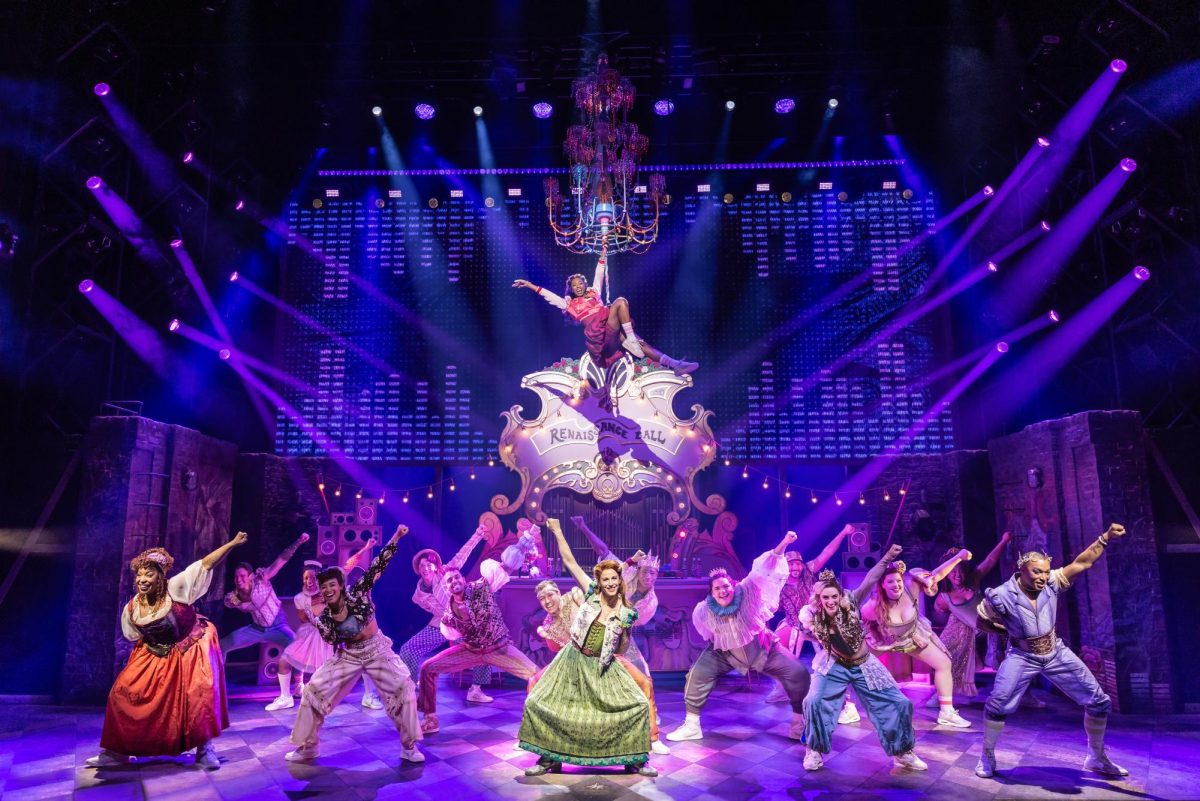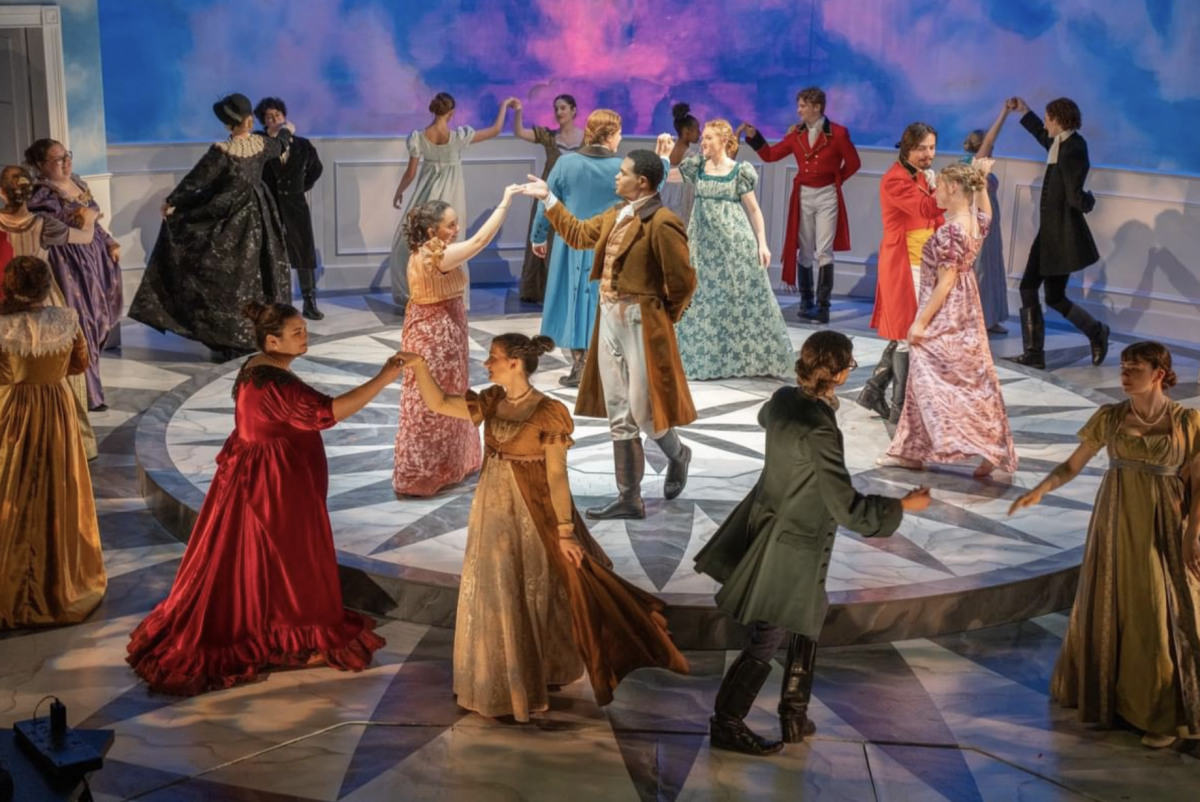Martin Scorsese's "The Departed" is a new crime classic, on par with "The Godfather," "Goodfellas" and "Heat." It's that good. It's also Scorsese's best film in a decade and a half — a rollicking, deliciously over-the-top masterpiece of pop conventions for those of us who like our twist with a shout. This is the best American movie in years.
It is also, I might add, one of the darkest movies in years. Simply put, this movie has a mean streak: it's a junk-yard dog picture, one that leaps up and goes for the jugular. If glassings, curbings and coat-hanger beatings aren't your idea of a good time, steer clear. This one has claws.
For all of its darkness, the movie has a joyous quality that is infectious. How can you dislike a movie that features a character named Jimmy Bags? This all starts from the top, where Scorsese and screenwriter William Monahan ("Kingdom of Heaven") have created a movie that is by turns hilarious and brutal. They also had the presence of mind to turn Jack Nicholson loose in what may be one of the most singular performances in recent memory. As Boston crime lord Frank Costello, Nicholson spends the prologue of the movie with his face cloaked in shadows, before emerging, grinning like the cat that ate the canary. His performance has a unique, other-worldly aura that is impossible to pin down. As inhabited by Nicholson, Costello transcends any and all mob-movie clichés, ending up more like a mix between Satan and a crazy old uncle.
Nicholson's presence hangs over the film, touching every scene. It is a testament to the rest of the fine ensemble that they do not allow his presence to engulf them all. For all of Nicholson's goofiness, the film still packs an emotional wallop.
"The Departed" is a well-organized machine, which is not something that has been Scorsese's strength over the years. He's never been a director with relentless focus, but Monahan's script doesn't allow for any tangents, and the movie is better as a result.
Matt Damon and Leonardo DiCaprio are two young up-and-comers going through training in the Massachusetts state police. After graduation, Damon lands the plum assignment inside the Special Investigation Unit, where he soon rises up to head an organized crime task-force under the watchful eye of a borderline-unstable FBI spook played with a kind of over-the-top glee by Alec Baldwin in a performance that would seem insane in any other film, but when compared to the show Nicholson puts on, seems tame. There is a hitch, though — Damon is actually an informant to Costello and his gang, feeding them information about upcoming raids and passing along secret government information.
Simultaneously, the state troopers are grooming DiCaprio to go under as a mole in Costello's organization. Under the watchful eye of the fatherly Captain Queenan (Martin Sheen, in a role intended for Robert De Niro) and the moderately unstable Sergeant Dignam (Mark Wahlberg), he sinks in deep with Costello's organization, pulling off jobs and posing as one of the gangsters. Soon enough, Wahlberg and Damon are pitted against one another, peripherally at least, as both men take it upon themselves to discover the mole in their respective organizations.
The film could easily have become disjointed and slow because it keeps switching perspectives, from Damon inside the SIU to DiCaprio out on the streets, but Monahan's brilliantly constructed script keeps everything in line. Even though they only have a few scenes together, Damon and Wahlberg are linked by the supporting players, all of whom share scenes with each character, creating the illusion of symmetry.
As rivals, DiCaprio and Damon strike just the right chords. Damon's Colin Sullivan is cocksure and confident, brimming with enthusiasm and malevolence, but also has a tender side. As Billy Costigan, DiCaprio finally grows up. Whereas he seemed to get blown off the screen in his two earlier outings with Scorsese — 2002's "Gangs of New York" and 2004's "The Aviator" — here, he is an intimidating, formidable physical presence.
Both actors are charismatic and under control, yet they manage to hold their own against Nicholson. Their exchanges range from bizarre (such as when Nicholson attacks Damon with a sex toy) to humorous ("I did well at school," Costello tells a young Colin in a flashback, "that is what they call a paradox") to reflective (When trying to defend a comment he made about Billy's straight-arrow father, Costello sums up his feelings for the man in succinct fashion, saying only, "I'm not saying your father amounted to nothing, I'm just saying he worked at the f—ing airport.") Neither Damon nor DiCaprio gets to deliver the show-stopping monologue in these scenes, but their performances are so nuanced that they both achieve a kind of greatness here.
This is probably the most complete movie Scorsese has ever made. There are no third act tangents or bizarre thematic hang-ups — instead, he just tells a story. This is not to say that we don't get Scorsese flourishes. The movie opens up with a 25-minute prologue before the title card rolls. And notice how he playfully cuts the soundtrack in and out during key moments, further extending one of the great joys of cinema-going — the Scorsese music montage. (Somehow, he manages to extend a two-and-a-half-minute-long Dropkick Murphy's song over five minutes of action in the second act.)
The impact of "The Departed" is a visceral one. It's a grand, brilliantly structured piece of American moviemaking, an example of what happens when a great director gets hold of some brilliant material and enlists a game crew of talented actors. This is why we go to the movies. As of the first weekend of October, the search for the best movie of the year 2006 can officially be called off. "The Departed" has arrived.
Grade: 5 out of 5







